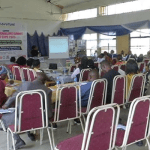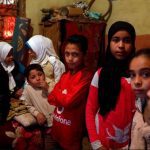Gombe State has recently recorded an impressive increase in the number of new clients seeking family planning services, with over 28,000 individuals availing themselves of these services.
This is a significant milestone in the state’s efforts to promote reproductive health and family planning, and it underscores the importance of providing accessible and affordable healthcare services to all members of the community.
The rise in demand for family planning services is a positive development that reflects the growing awareness and acceptance of the benefits of family planning. It is also a testament to the effectiveness of the state’s family planning programs, which have been designed to meet the unique needs and preferences of the local population.

Mrs. Aise Fada, the agency’s Deputy Family Planning Coordinator, informed media in Gombe during the Quarterly Meeting of the Media Working Group that 456 facilities provided Family Planning Services in the first quarter. Mrs. Fada stated that these facilities reported to the National Health Insurance Scheme, or NHIS.
She, however, appealed to the journalists to put in more effort in advocating for the provision of more injectables, which was the major challenge confronting the provision of Child Spacing Services in the state.
According to her, the state has no problem with commodity stock-out, but more consumables are needed, such as cotton wool, xylocaine and planter, among others, because the procedure for administering family could not be carried out without them. The shortage of the injectable, she said had made facilities providing child spacing charge stipends from clients coming for these services before they are offered such services.
The Deputy Family Planning Coordinator said the agency in Gombe State announced that a partner would be coming into the state to carry out a project on self-injectable, known as Subcutaneous depot medroxyprogesterone acetate. Mrs. Fada said the self-injectable will be taught to the women in the state, so that they could administer it on themselves.

She stated that the partner planned to educate chief agents and community volunteers, who would then travel into the areas and teach women how to utilize the free product. There are no negative effects, and each dose is intended to last three months.
The Media Working Group’s Quarterly Meeting, which is financed by the Challenge Initiative, normally examines activities and plans new methods for promoting child spacing services among reproductive women in the state for healthier mothers and children.














